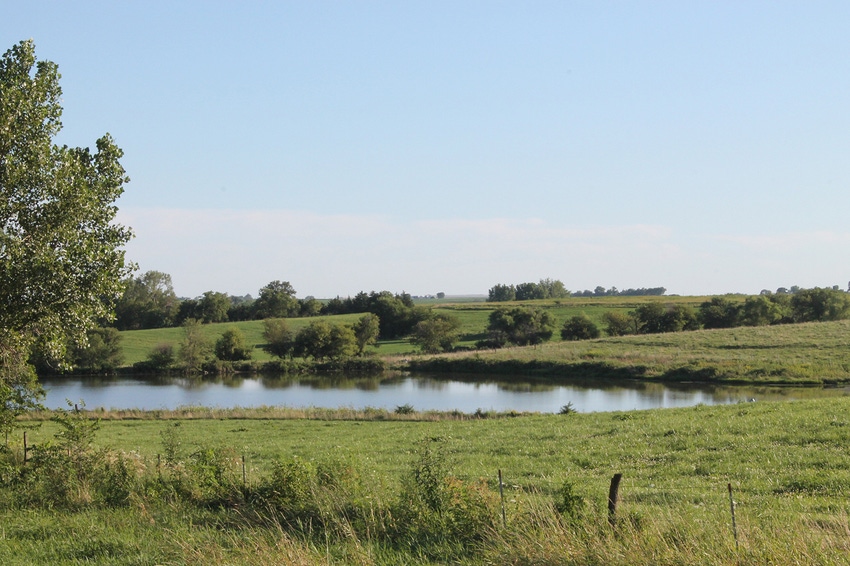Legislative Watch: Navigable Waters Protection Rule; OFF Act; Trump to sign USMCA; Brexit to happen Jan. 31.

The U.S. Environmental Protection Agency announced it was replacing the "Waters of the United States" with the Navigable Waters Protection Rule. The new rule will reduce federal jurisdiction over many seasonal streams, small waterways and wetlands. It will provide greater certainty to farmers and ranchers. This is the largest rollback of federal jurisdiction since the Clean Water Act was passed in 1972.
Federal jurisdiction will now cover four categories of waters:
Territorial seas and traditional navigable waters
Perennial and intermittent tributaries to those waters
Certain lakes, ponds and impoundments
Wetlands adjacent to jurisdictional waters
The final rule also details 12 categories of exclusions, features that are not "WOTUS," such as features that "only contain water in direct response to rainfall (e.g., ephemeral features); groundwater; many ditches, including most farm and roadside ditches; prior converted cropland; farm and stock watering ponds; and waste treatment systems."
The new rule has been widely praised by the agricultural community:
American Farm Bureau Federation president Zippy Duvall says, "It provides clarity and certainty, allowing farmers to understand water regulations without having to hire teams of consultants and lawyers."
National Pork Producers Council president David Herring says, "Today's action balances the role of federal, state and local authorities, protects property rights and provides clarity for farmers like me, while providing regulatory certainty to our farmers and businesses."
National Cattlemen's Beef Association president Jennifer Houston says, "This is the last regulatory step in a long-fought battle to repeal the 2015 Waters of the U.S. rule and replace it with common-sense regulation. The 2015 WOTUS rule was an illegal effort to assert control over private property - and we fought to have it repealed - but it also needs to be replaced, and today's action is the last step in that process."
Not all groups were pleased with the rule and have threatened legal action.
National Wildlife Federation president and CEO Collin O'Mara, says, "At a time when communities across the country are desperately trying to clean up polluted waters and one-third of wildlife species are at a heightened risk of extinction, this misguided rule places our drinking water, our wildlife and our nation's way of life further at risk.
"Since the Administration refuses to protect our waters, we have no choice but to ask the courts to require the EPA to follow the law. We simply cannot afford to lose protections for half of our remaining wetlands, nor can we take any unnecessary chances with our drinking water."
National Resources Defense Council president and CEO Gina McCarthy says, "This effort neglects established science and poses substantial new risks to people's health and the environment. We will do all we can to fight this attack on clean water. We will not let it stand."
WOTUS was one of the most controversial rules of the Obama administration with agricultural producers.
Checkoffs should be more accountable
Congresswoman Dina Titus (D-NV) has introduced the "Opportunities for Fairness in Farming Act" to bring greater accountability and transparency to checkoff programs.
The legislation would prevent USDA checkoff programs from paying organizations that lobby on agricultural issues, prohibit anticompetitive behavior, ban activity that involves a conflict of interest and require audits to ensure compliance.
Titus says, "The USDA's checkoff programs have operated without sufficient oversight for far too long – and this legislation will bring much-needed accountability and transparency. Family farmers should not be forced to pay into organizations that sometimes lobby against their own interests and threaten animal welfare."
Checkoff reform legislation has been introduced in the past, but no legislative action was taken by Congress.
Trump to Sign USMCA
President Trump plans to sign the U.S.-Mexico-Canada Agreement on Wednesday at a White House ceremony. Canadian Prime Minister Justin Trudeau announced that Canadian government will unveil legislation on Jan. 29 to ratify USMCA and the Parliament will then move forward to ratify the agreement.
Brexit to happen Jan. 31
The United Kingdom will officially leave the European Union on Jan. 31, ending a 47-year relationship with the EU. The Trump administration has indicated it would like to complete a trade agreement with the UK this year.
Source: P. Scott Shearer, who is solely responsible for the information provided, and wholly owns the information. Informa Business Media and all its subsidiaries are not responsible for any of the content contained in this information asset.
About the Author(s)
You May Also Like



